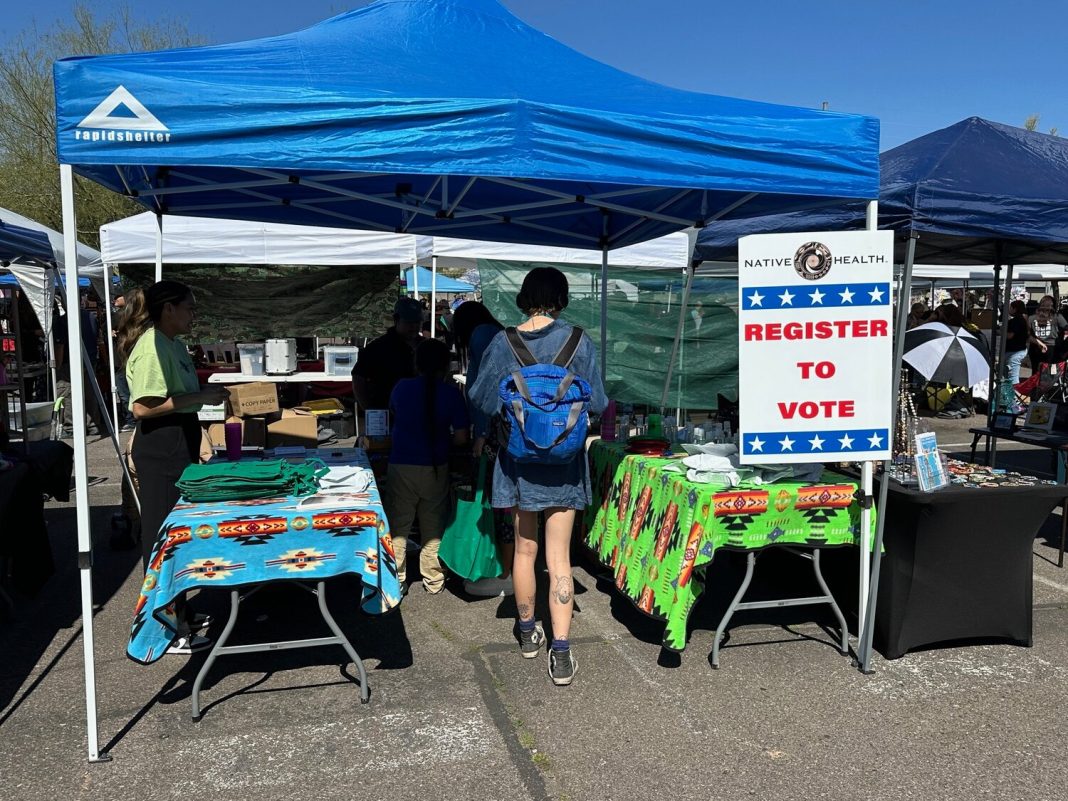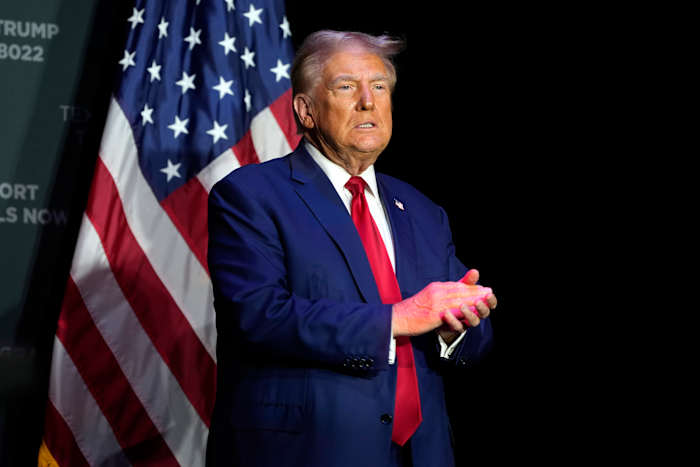Indigenous Voting Rights: A Century of Struggle and Progress in Arizona
By Marshall Baker | Cronkite News
PHOENIX — It’s been nearly a century since the Indian Citizenship Act was signed into law in June 1924, granting Indigenous people born in the United States citizenship and the right to vote. Yet, as we approach this significant milestone, many Indigenous communities in Arizona continue to face a myriad of challenges that hinder their participation in the electoral process. From logistical hurdles to legislative roadblocks, the journey toward equitable voting rights remains fraught with obstacles.
Despite the landmark legislation, the fight for voting rights has been a long and arduous one. In 1948, the Arizona Supreme Court overturned a ruling that had previously barred Indigenous people from voting in the state. Fast forward to 1965, when the Voting Rights Act was passed, reinforcing Indigenous voting rights. However, even then, discriminatory practices like English literacy tests persisted until the 1970s, further complicating access to the ballot box.
Today, the landscape of voting rights for Indigenous people in Arizona is still riddled with challenges. Many face long journeys to polling stations, often traveling hours over poorly maintained roads with unreliable transportation. Compounding this issue is the lack of standard residential addresses on reservations, which complicates mail-in voting and voter registration. A recent Supreme Court ruling allowing Arizona to enforce proof of citizenship for voter registration has only added to the difficulties, raising concerns about disenfranchisement in Indigenous communities.
In August, U.S. Rep. Joe Morelle, D-N.Y., and the U.S. Committee on House Administration released a report detailing the unique barriers Indigenous voters face. “Native peoples continue to face substantial and unique barriers to equal participation in federal, state, and local elections,” Morelle stated. His commitment to addressing these issues reflects a growing recognition of the need for systemic change.
U.S. Rep. Ruben Gallego, D-Ariz., who has been actively engaging with tribes across Arizona, echoed this sentiment. “I have heard extensively about the many barriers to voting in Indian Country,” he said. “More work remains to be done, and that’s why this report comes in.” The report outlines key challenges, including:
- Traveling long distances to access voting locations, often with unreliable transportation.
- Lack of standard addresses on reservations, making mail-in voting difficult.
- Insufficient mail service from the U.S. Postal Service.
- Voter ID laws that disproportionately burden Indigenous voters.
- Insufficient language assistance for non-English speakers.
- Electoral systems that dilute the voting strength of Indigenous communities.
To combat these barriers, organizations like Arizona Native Vote are stepping up to increase civic engagement and education within tribal and rural communities. Founded by Jaynie Parrish, the nonprofit is dedicated to helping Indigenous voters navigate the complexities of the electoral process. “Physical addressing is No. 1,” Parrish emphasized, highlighting the challenges of reaching and registering rural and tribal voters.
Arizona is home to 22 federally recognized tribes, making Indigenous people a crucial voting bloc. In the 2020 election, President Joe Biden won the state by just over 10,000 votes, with more than 60,000 votes cast from the Navajo Nation alone. This underscores the importance of ensuring that Indigenous voices are heard and represented in the electoral process.
Legislative efforts have been made to address these concerns, including the Native American Voting Rights Act introduced in 2021, which aims to improve voting access in rural communities and enhance tribal oversight of election processes. However, many of these initiatives have yet to gain traction in Congress.
Organizations like Native Health Central in Phoenix are also making strides in voter registration efforts. As the first designated national voter registration site within the Indian Health Service, they have been actively engaging Indigenous communities to ensure they are registered before the upcoming election deadlines. “We’ve been doing civic engagement for multiple election cycles,” said Susan Levy, the volunteers and community involvement coordinator at Native Health.
As the registration deadline and early voting approach, the commitment to supporting Indigenous communities remains steadfast. “Our work doesn’t start and stop with a campaign or election year,” Parrish noted. “We’re going to be here even after Election Day, still doing the work that we do.”
While the Indian Citizenship Act marked a significant step forward for Indigenous rights, the journey toward true electoral equity is ongoing. With continued advocacy, education, and community engagement, there is hope that the voices of Indigenous people in Arizona will not only be heard but will also shape the future of democracy in the state.



